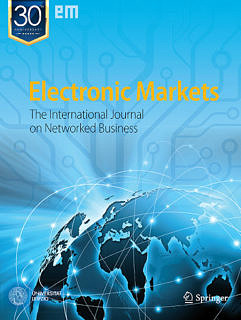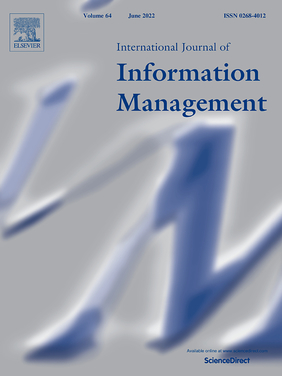Aktuelles
Summer Term 2025
In the summer term 2025 we will offer the lecture AI-based Decision Support II as well as the Scientific Project: Applications of Artificial Intelligence. As every term, we also have openings for master thesis topics (please check out the dealines!).
Application schedule:
- AIbDS II will be available for enrollment mid March - just visit the e-learning site here.
- For the Scientific project, you have to use the central application process provided by the faculty and the dean of study affairs. You will be added to the e-learning course automatically by us. A mail will be sent out prior to the enrollment (the date of the mail depends on your priority I or II) to confirm you are in the seminar
- For the master's application, please refer to the info page linked above
Article on AI adoption published in Electronic Markets

Contemporary decision support systems are increasingly relying on artificial intelligence technology such as machine learning algorithms to form intelligent systems. These systems have human-like decision capacity for selected applications based on a decision rationale which cannot be looked-up conveniently and constitutes a black box. As a consequence, acceptance by end-users remains somewhat hesitant. While lacking transparency has been said to hinder trust and enforce aversion towards these systems, studies that connect user trust to transparency and subsequently acceptance are scarce. In response, our research is concerned with the development of a theoretical model that explains end-user acceptance of intelligent systems. We utilize the unified theory of acceptance and use in information technology as well as explanation theory and related theories on initial trust and user trust in information systems. The proposed model is tested in an industrial maintenance workplace scenario using maintenance experts as participants to represent the user group. Results show that acceptance is performance-driven at first sight. However, transparency plays an important indirect role in regulating trust and the perception of performance.
The article is open access and available at: https://link.springer.com/article/10.1007/s12525-022-00593-5
Research paper published in IJIM

Together with colleagues from JMU Würzburg, we published a paper on the trade-off between explainability and accuracy in ML research.
Explaining #AI system decision models to users is becoming ever more important. But mathematical and programmatic considerations do not suffice to scrutinize applications with humans.
We show that we should neither simplify the tradeoff between performance and explainability as continuous nor that the data-driven interpretability of algorithms entails algorithm explainability towards end users. Rather, we show that there are currently three groups of algorithm explainability somewhat distinct in performance capabilities. Hence, we say: Stop Ordering Machine Learning Algorithms by their Explainability.
The article is available here and open access in the International Journal of Information Management, #1 journal in SJR for Management Information Systems & Information Systems and Management.
Article published and nominated for best paper at ECIS 2022
Together with colleagues at TU-Dresden, we published a paper entitled "Where was COVID-19 first discovered? Designing a question-answering system for pandemic situations" in the ECIS 2022 proceedings, more specifically in the Design Science track. The paper has won the best paper in track award and was also nominated for best conference paper.
The COVID-19 pandemic is accompanied by a massive "infodemic" that makes it hard to identify concise and credible information for COVID-19-related questions, like incubation time, infection rates, or the effectiveness of vaccines. As a novel solution, our paper is concerned with designing a question-answering system based on modern technologies from natural language processing to overcome information overload and misinformation in pandemic situations. To carry out our research, we followed a design science research approach and applied Ingwersen's cognitive model of information retrieval interaction to inform our design process from a socio-technical lens. On this basis, we derived prescriptive design knowledge in terms of design requirements and design principles, which we translated into the construction of a prototypical instantiation. Our implementation is based on the comprehensive CORD-19 dataset, and we demonstrate our artifact's usefulness by evaluating its answer quality based on a sample of COVID-19 questions labeled by biomedical experts.
You can find a preprint of the article here.





